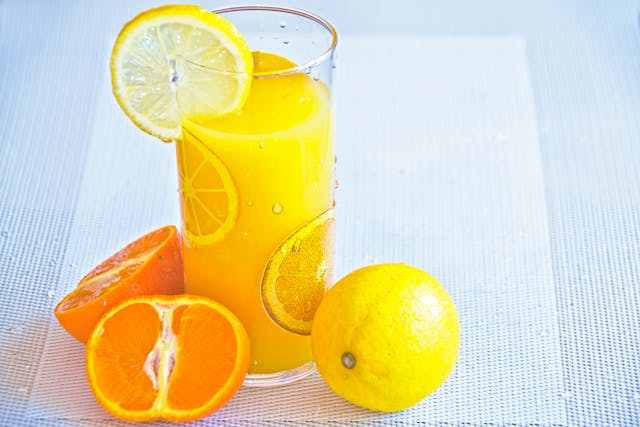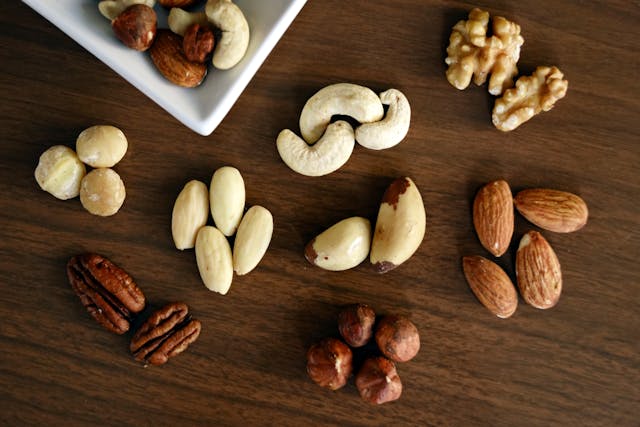As the leaves turn golden and temperatures drop, we start to think about staying healthy through autumn and winter. It’s the time of year when we’re often told to stock up on supplements, but are they really necessary? Let’s take a deeper dive into the science behind what our bodies need during the colder months and whether a balanced diet can outperform the convenience of popping vitamins.
Our bodies require certain nutrients to keep our immune systems strong, energy levels steady, and our mood in check, especially when shorter days and colder weather can make us feel sluggish. Some of the key players in this seasonal nutrition game are vitamins D, C, and the B-complex vitamins, along with minerals like zinc and magnesium.

Vitamin D is one of the most talked-about supplements for the colder months. Since our bodies make vitamin D when exposed to sunlight, it’s no surprise that levels can drop in autumn and winter when the days are shorter. Deficiency in vitamin D has been linked to a weakened immune system, mood changes, and even bone health issues. According to research, supplementation may be helpful for individuals who don’t get enough sun exposure or vitamin D from their diet like oily fish, egg yolks, and fortified cereals can help, but for many, a supplement can provide a necessary boost.

Vitamin C is famous for its immune-boosting properties, and while it’s always important, the colder months can make us more susceptible to colds and flu. Vitamin C helps support immune function and is also an antioxidant. While most people can get enough vitamin C from their diet through fruits like oranges, kiwi, and bell peppers, a supplement might be useful for those with limited access to fresh produce or those wanting extra assurance .
Zinc mineral known for supporting immune function. Some studies suggest that zinc supplements can reduce the duration of colds if taken at the onset of symptoms . Foods like nuts whole grains, and legumes are rich in zinc, but supplementing can fill in the gaps if your diet is lacking.

However, it’s important to ask whether supplements are really necessary for everyone. In many cases, a balanced diet may be just as effective, if not more beneficial, than relying on supplements. Whole foods provide a wide range of nutrients that work together to enhance absorption and effectiveness. For example, citrus fruits not only contain vitamin C, but also flavonoids that can enhance its immune-supporting power . Additionally, foods likend almonds provide magnesium, which is essential for muscle function and can help reduce winter fatigue .
Eating a rainbow of fruits and , whole grains, lean proteins, and healthy fats should be the foundation of staying in tip-top condition over autumn and winter. Not only does this give your body the vitamins and minerals it needs, but it also provides fiber, antioxidants, and phytochemicals that support overall health in ways that a simple pill can’t replicate. The synergy of nutrients in whole foods is something supplements can’t fully mimic.

Beyond diet and supplements, there are other ways to help ourselves thrive during the colder months. Staying active is crucial—exercise can boost mood, improve circulation, and strengthen the immune system. Regular physical activity also stimulates the production of endorphins, which help combat the winter blues . Don’t forget about hydration, either! Evenu may not feel as thirsty, staying well-hydrated supports every function in your body, including immune health. Lastly, adequate sleep is essential. Sleep strengthens the immune system, and during the darker months, your body may need more rest than in summer .
In conclusion, while supplements like vitamin D, C can be helpful, especially when there are gaps in diet or limited sun exposure, focusing on a nutrient-rich, balanced diet will generally serve you best. The combination of wholesome foods, staying active, and good sleep habits is the trifecta for staying strong throughout autumn and winter.
Love Life x
References:
- Hirshkowitz, M. et al. (2015). National Sleep Foundation’s sleep time duration recommendations. Sleep Health, 1(1), 40-43.
- Pedersen, B. K., & Saltin, B. (2015). Exercise as medicine – Evidence for prescribing exercise as therapy in 26 different chronic diseases. Scandinavian Journal of Medicine & Science in Sports, 25, 1-72.
- Rowe, C. A., et al. (2004). Citrus flavonoids and immune function. Journal of Food Science, 69(2), 100-104.
- Barbagallo, M., Dominguez, L. J. (2010). Magnesium and aging. Current Pharmaceutical Design, 16(7), 832-839.
- Holick, M. F. (2007). Vitamin D deficiency. New England Journal of Medicine, 357(3), 266-281.
- Hemilä, H. (2011). Zinc lozenges may shorten the duration of colds. Journal of Infectious Diseases, 203(5), 622-627.
- Carr, A. C., & Maggini, S. (2017). Vitamin C and immune function. Nutrients, 9(11), 1211.

